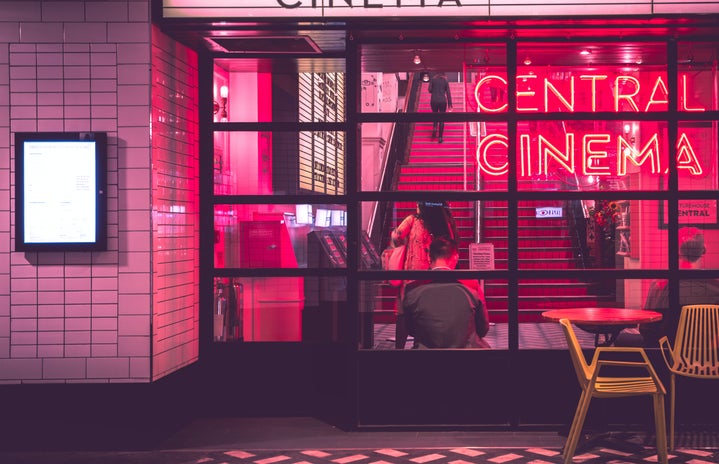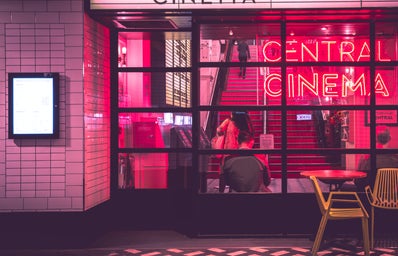… here is who to keep your eye on (Special French Cinema edition)
In France, in 2016, among all the 16 films that made over a million entry, none of them was made by a woman. We could go on and on with appalling statistics like this but I have decided instead to focus on how things are changing.
This article was originally intended to be a list of French films that I considered cult classics, and through which others could discover French culture. However, when writing it, and trying to include as many women directors as I possibly could, I came to the realization that I knew approximately ten thousands French male directors (okay, yes, I may be slightly exaggerating on that figure) and yet was unable to come up with the name of even ten women filmmakers in France. So, I have decided to go through all the films I have ever seen – I write them all on my Notes App – to create a list of beautiful films that not only marked me, but were exclusively made by women. I am here sharing this list with you, in the hopes you’ll love them as much as I did.
- Divines by Houda Benyamina
Divines is a little slap in the face that shocked the critics at Cannes and collected all the most prestigious awards, such as the César (the French equivalent of the Academy Awards) for Best First Film (for Houda Benyamina), the César for Best Feminine New Hope for Leading Actress, Oulaya Amamra, and the Caméra d’Or at the Cannes Film Festival. Divines retrace the story of two friends, Dounia and Maimouna, who start working for a drug dealer and find themselves propelled in a world very different from the poor neighborhood where they are from. It’s a film about friendship, and love, but also about violence, abuse of power, sexuality, social exclusion, and more, that I can only recommend watching.
TW: violence, death, SA
- Polisse by Maïwenn
The film title is written as if a child had tried to write the word police. This movie, filmed almost like a documentary, follows a team of the juvenile protection brigade in a district of Paris. In confronting sexual violence perpetrated on children, the film touches upon a subject that has never been talked about with such honesty and transparency before. Polisse puts the spectator face to face with the worst side of human nature, but does so in a very human way, as we follow the stories of the members of the brigade, their friendships, their disputes, their breakdowns, and what drives them to work in such a job. Polisse is a film that will make you go from laughter to tears in a few seconds, and that will stay with you long after you’ve finished watching it. Out of all the films on this list, if you only had to watch one, please let it be this one.
TW: SA, violence, incest, suicide
- Mon Roi by Maïwenn
Another film made by Maïwenn, but it couldn’t be more different from the previous one.
When Tony finds herself in a center of rehabilitation after a serious skiing accident, she looks back on the very toxic relationship she has had with her husband, and how she spent twenty years of her life trying to escape the trouble of loving a manipulative and a narcissistic pervert. Starring two phenomenal actors, Emmanuelle Bercot as Tony, and Vincent Cassel as Giorgio, her husband, Mon Roi is to be seen for the tremendous performances of the actors.
TW: suicide, abuse
- Cléo de 5 à 7 by Agnès Varda
We are now entering a new tone, with one of the most iconic film of the French New Wave, a French artistic movement that took place towards the end of the fifties and the sixties, and in which Agnès Varda has positioned herself as one the leading figure (and is, by the way, the only women included). Cléo de 5 à 7 (translation: Cléo from 5 to 7) follows Cléo, a Parisian singer, while she awaits the results from a medical analysis. Torn between anxiety and her superstitious beliefs, she is going to meet people throughout the day that will change her perspective on life. As always with French New Waves films, Cléo de 5 à 7 is a cinematographic masterpiece that is closer to a contemplative style of films than the previous ones I’ve mentioned. It’s a film made by a woman about women that marked the history of French cinema.
5. Grave by Julia Ducournau
Grave means raw in french.
Gifted student Justine is only sixteen when she arrives to study at veterinary school. As a fervent vegetarian she has never eaten meat but finds herself strangely drawn to human flesh after having been bullied into eating a rabbit’s kidney during the hazing of the new students.
Grave is so far the best French film I have ever seen. The cinematography is unique, the soundtracks is strikingly perfect for each scene, the performances of young actors that were so far relatively unknown (especially leading actress, Garance Marillier) are unbelievable. But above all, the best reason to see this film is to discover Ducournau’s very particular, deliciously gore and bloodily beautiful style of filmmaking when directing her flesh-eating heroine.
Overall, Ducournau’s work portrays girls and women that are more than the weak little creatures meant to be saved, that we often see on TV; instead they are the agents of their own disruptive actions, which is incredibly thrilling to see.
TW: it’s a horror film… be ready
+ If you enjoy Raw, I recommend you watch Titane, Ducrounau’s second feature film, which is renowned for having caused such great discomfort to the people watching in Cannes that they had to leave the room. Nevertheless, Durcournau went home with Cannes’ Palme d’Or that day.
TW: don’t watch this unless you are sure you can handle a very high threshold of violence and discomfort
6. Portrait of a Lady on Fire by Celine Sciamma
So, you have probably already heard of this one, given the international success it had, and it being known as a kind of French Call Me By Your Name.
On an island in Brittany in the 18th century, Marianne has to paint the wedding picture of Héloïse, who tries to escape her fate by refusing to pose for her. Marianne has no choice but to try and secretly paint her, while pretending to be her maid.
With her intimate depiction, Celine Sciamma, as always, succeeds in portraying a brilliant tour de force. The chemistry between Noémie Merlant (Mariane) and Adèle Haenel (Héloïse) itself is a good enough reason to see the film, besides the beautiful scenery and the brilliant writing.
+ If you enjoyed Portrait of a Lady on Fire, I can only encourage you to go discover more of Sciamma’s filmography which is just as beautiful as it is underrated.

